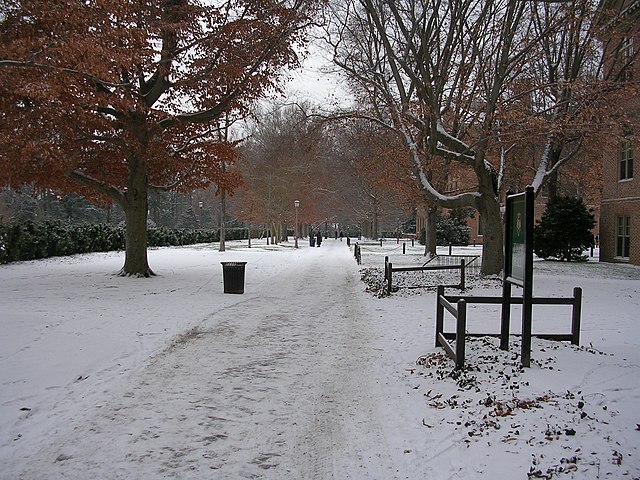
Thammasat University students interested in film, Japan, economics, sociology, international relations, soft power, and related subjects may find it useful to participate in a free 26 February Zoom webinar on Cinema of Discontent: Representations of Japan’s High-Speed Growth.
The event, on Monday, 26 December 2023 at 9am Bangkok time, is presented by the School of Humanities and Centre for the Study of Globalization and Cultures, Hong Kong University (HKU).
The TU Library collection includes several books about different aspects of Japanese film.
Students are invited to register at this link:
https://hkuems1.hku.hk/hkuems/ec_regform.aspx?guest=Y&UEID=92611
The event announcement explains:
From the mid-1950s to the mid-1970s, Japan experienced an unprecedented level of economic growth, transforming itself from a war-devastated country to a global economic power. Our image of postwar Japan has been shaped by this event, and we tend to see its history as a story of great national success. In his newly released book “Cinema of Discontent: Representations of Japan’s High-Speed Growth,” Dr. Sasaki challenges this view and details the tensions generated by massive and intense capitalist development through analyses of popular cinema produced during the era of high-speed growth. […]
The speaker will be Professor Tomoyuki Sasaki, who teaches Japanese studies at the College of William & Mary in Virginia, the United States of America.
TU students may access Professor Sasaki’s book Cinema of Discontent: Representations of Japan’s High-Speed Growth through the TU Library Interlibrary Loan (ILL) service.

The publisher’s description follows:
From the mid-1950s to the mid-1970s, Japan experienced an unprecedented level of economic growth, transforming itself from a war-devastated country to a global economic power. Our image of postwar Japan has been shaped by this event, and we tend to see its history as a story of great national success. Cinema of Discontent challenges this view and details the tensions generated by massive and intense capitalist development through analyses of popular cinema produced during the era of high-speed growth. […]
In 2022, Professor Sasaki published an article in The Asia-Pacific Journal on A Crisis of Japanese Studies: How Japan’s Border Restrictions Have Affected Research in the Field:
Starting in February 2020, the Japanese government began banning the entry of people from countries badly affected by the COVID-19 pandemic. By August the same year, the list of these countries had grown to 159. At the time of writing this essay in early October, 2022, visas can be issued to those newly entering Japan for a long-term stay (such as study abroad or employment in Japan), short-term business, or a short-term package tour. In these cases, anyone applying for a visa must have an institutional sponsor, or what the Japanese government calls a “receiving organization,” in the country.
According to the announcement made by Prime Minister Kishida last month, Japan is scheduled to resume the admission of foreign visitors without visas starting on October 11. Accordingly, the maximum capacity of visitors allowed to Japan per day, which is currently set at 50,000 a day, will be lifted, too. These actions will finally end the country’s COVID-related border restrictions, and the free movement of people that had existed in the pre-pandemic era is expected to be revived. As the results of the survey that I conducted in this summer indicate, however, the strict border restrictions that have lasted for more than two years will likely have long-term effects on the field of Japanese studies and researchers in that field. Therefore, I find it important to share these results for further discussion.
Background of the Survey
As a Japanese citizen, I can enter Japan and conduct my research there. But over the past couple of years, I have seen my friends and colleagues who are neither Japanese citizens nor permanent residents struggling to find ways of entering Japan for research, only to be disappointed and defeated by the realization that complicated bureaucratic procedures made it extremely difficult, if not impossible, to obtain visas. Moreover, many Japanese-studies researchers have strong personal ties with people in Japan (partners, friends, etc.). Their inability to visit Japan has meant not only that they were prevented from pursuing their professional activities but also that they were separated from the people they care about for a long time, the psychological effect of which has been immense.
Yet, while the restrictions lasted, the Japanese government and Japanese society remained quite indifferent to this issue. […]

Conclusion
This survey has confirmed the following points. First, until the current restrictions are lifted on October 11, the Japanese borders remain closed to non-Japanese visitors. In theory, Japan is open to researchers who plan to pursue professional activities there, but, in reality, very few researchers are able to visit Japan. Difficulty in finding sponsors and complicated procedures for acquiring visas have continued to discourage researchers from visiting Japan. Research is often solitary work conducted at the individual level that cannot always count on organizational support; high-quality research results are often achieved in this way (especially in the humanities). Therefore, it is not realistic at all to expect all researchers to find organizations in Japan willing to sponsor them for visas.
Second, Japan’s border restrictions affected researchers’ professional activities and their careers in a variety of ways over the past couple of years. Researchers were forced to not only modify their research topics and approaches but also suspend or give up their research, postpone publication, postpone or give up the use of research grants and fellowships, and in some cases, even leave the field for other careers. The way that the Japanese government has addressed the issues of the nation’s border restrictions as well as the way the Japanese mainstream media has reported on this may give the impression that only tourists without visas are currently prevented from entry to Japan. However, I want to emphasize that researchers need to go to Japan not for leisure but for their own lives and livelihoods and that Japan’s border restrictions have brought immense, irreversible changes to what they do for a living.
Third, even though Japan’s border restrictions are to be lifted very soon, they are expected to have a long-term effect on Japanese studies, causing an overall decline in the field and a shrinking of general interest in Japan. This will likely manifest in many ways: a decrease in the number of students studying Japan, students majoring or minoring in Japanese studies, scholars specializing in Japan, publications on Japan, academic departments/programs that offer courses on Japan, and so on. Also, as the comments in Q10 indicate, many researchers of Japanese studies, who care deeply about Japan and have contributed enormously to the growth of the field, have come to develop a deep sense of disappointment and distrust toward the country (or, more precisely, its government). In the past decade or so, Japan has vigorously promoted the country’s soft power and openness to foreign visitors using such expressions as “Cool Japan” and “hospitality” (omotenashi), but the border restrictions revealed how superficial these policies are and how easily Japanese society can turn xenophobic and introverted. In this environment, it seems only natural that many researchers of Japan—especially those in their early careers—are losing interest in and concern for Japan and switching fields. This is a true crisis. […]

(All images courtesy of Wikimedia Commons)
